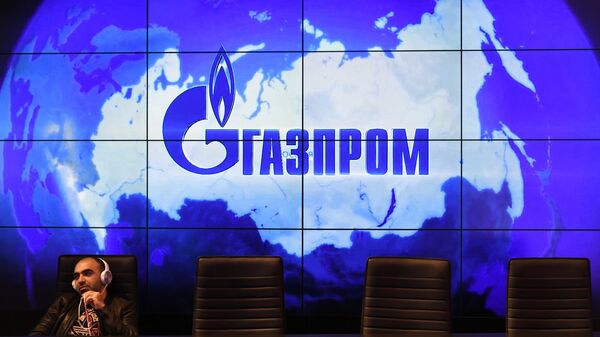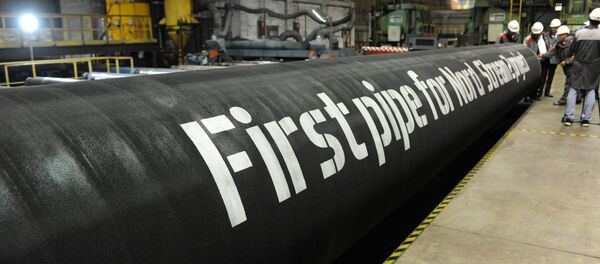While British Prime Minister Theresa May is seeking alternatives to Russian natural gas over the alleged spy poisoning case, it appears that she has little if any options, Sputnik economic observer Igor Naumov writes.
"Currently the UK meets a little less than half (43 percent) of demands for natural gas through its own production," the observer pointed out. "According to Gazprom Expert estimates, the share of Russian pipeline gas in the UK exceeds 20 percent."
In 2017 Russia's deliveries of natural gas to Britain have soared two-fold comparing with 2011 and reached 16.26 billion cubic meters. In total, last year Gazprom Group supplied 194.4 billion cubic meters of gas to European countries, according to the Gazprom Export website.
Meanwhile, in late December, Novatek, a Russian private company sent the first batch of liquefied natural gas (LNG) from the Yamal LNG plant to Britain.
Naumov presumes that the only viable alternative to Russian pipeline gas for the island state is LNG. Citing Sergei Pravosudov, director the Energy Research Institute of the Russian Academy of Sciences (ERI RAS), the journalist suggested that Britain is able to arrange new LNG deliveries. However, it will cost end consumers twice as much as pipeline natural gas, he warned. Furthermore, the question arises as to who will become the UK's primary supplier.
While American shale gas producers are actively promoting their services on the global market, the UK has recently faced certain difficulties while dealing with them, the Sputnik contributor noted.
In 2011-2013, British energy companies Centrica and BG Group concluded a total of four 20-year contracts with US hydrocarbon suppliers. It was expected that from 2018 the United Kingdom would buy up to 11.65 million tons of LNG (about 16 billion cubic meters of gas) from the US.
In 2017, the US exported a total of 19.7 billion cubic meters of LNG. However, American hydrocarbon producers do not view Europe as their primary destination, as European gas prices are much lower than those in Asia, Naumov pointed out. Therefore, it is Asia that attracts the most attention of US shale companies, he stressed.
For his part, Pravosudov believes that Washington's crackdown on the Nord Stream 2 project was not actually triggered by US concerns about the European energy security. The US strategic goal is to get rid of Gazprom, its major rival, thus creating a natural gas deficit in the Old Continent. As a result, gas prices will soar and American LNG will become competitive.
At the same time, it appears rather doubtful that British companies will sacrifice their business interests for the sake of London's political games, especially amid Brexit, Naumov suggested.
Last year David Campbell, president of BP Russia at BP Plc, confirmed the company's readiness to cooperate regardless of sanctions, stressing that the industry could adapt to these circumstances and continue working.
According to Pravosudov, political statements, however harsh they may be, are not capable of destroying partnership ties. He expressed his confidence that Russo-British joint projects in the energy sector will continue, as well as Russia's natural gas supplies to British consumers.
While commenting on May's intention to find an alternative to Russian natural gas, Energy Minister Alexander Novak warned London against making hasty decisions.
"Should the statements become a reality regarding alternative sources for gas instead of Russia, that will damage first and foremost the consumers. Should any company or country opt for another supplier, I don't think that condition will be that preferential and beneficial for them," Novak said in an interview with Bloomberg.
The recent row between London and Moscow has emerged over the alleged poisoning of former intelligence agent Sergey Skripal and his daughter in the UK, which was qualified by the British government as a Russian chemical attack. Presenting no evidence to confirm the accusations, Theresa May initiated the expulsion of 23 Russian diplomats. Moscow rejected the allegations and booted 23 British diplomats in response to London's move.
The views and opinions expressed by the contributors do not necessarily reflect those of Sputnik.





